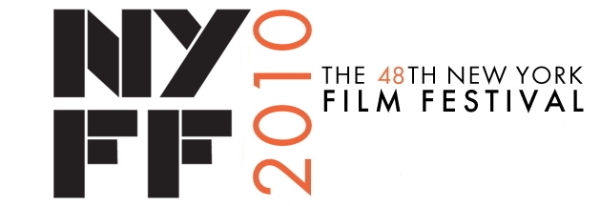The New York Film Festival, hosted by the Film Society of Lincoln Center, kicked off last Friday night with the dazzling debut of David Fincher’s newest masterpiece, ‘The Social Network.’ The Festival continues for the next couple of weeks, but I’ve already seen some stuff that will be playing, so I thought I’d rundown what I’ve seen so far. Ranging from the horribly pretentious to the beautifully sublime, and everything in-between, nothing beats the New York Film Festival for eye-opening cinematic fare.
Carlos (Olivier Assayas, France/Germany, 2010)
Of course Olivier Assayas would follow-up his demure, postage-stamp-sized drama ‘Summer Hours‘ with a sprawling, nearly-six-hour-long biopic chronicling the spectacular rise and fall of Venezuelan terrorist Carlos “The Jackal,” who was responsible for a string of heinous acts throughout the ’70s and ’80s. As played by Edgar Ramirez (‘Domino‘), Carlos comes across not as an impassioned revolutionary, but a listless troublemaker who bounces from one mission to the next, engaging in causes simply because they will earn him the respect of a political party that he’ll probably wind up swindling later.
The movie was produced as a television series for French TV, and will air over the course of three nights on the Sundance Channel very soon. Truthfully, this is probably the ideal way to see ‘Carlos’ – to take a night to digest everything you’ve just seen, maybe make a diagram of what exactly is going on, and then see the second part and then third. In one large gulp, ‘Carlos’ is still admittedly impressive, but can get confusing and confused, just like Carlos himself. This is especially true during the last section, which has a clipped pace meant to represent the tightness and anxiety that Carlos suffers. Still, for all the bagginess and confusion, ‘Carlos’ is still a phenomenal achievement, full of personal, oddball touches that only Assayas would have the guts to include. This includes an extended bit where Carlos has a problem with his testicles. (I’m not joking.) It seems like the perfect midway point between his more personal projects like ‘Summer Hours’ and the bolder, more internationally flavored genre fare of ‘Boarding Gate’ and ‘demonlover’ (although better than those two movies, by a longshot). When ‘Carlos’ shows up on Sundance Channel, don’t miss it. But if it comes to a theater near you, you might want to think twice about making the commitment. It’s a killer.
Film Socialisme (Jean-Luc Godard, Switzerland, 2010)
My how the mighty have fallen. Godard, once the godfather of the French New Wave, has taken up a new position as France’s grumpiest old man, and this film is proof positive of this new position. ‘Film Socialisme,’ the first movie by the director to be shot entirely on video, has three separate “movements,” at least according to what I read about it in ‘Film Comment.’ Truthfully, I had no idea what was going on.
The first section of the movie takes place on a cruise ship, which made me really want to be on a cruise ship and not schlepping through Manhattan covering the New York Film Festival. The second section involves a rural gas station and a series of misadventures. The third section involves random crap that Godard seems to have been looking at online, punctuated by blocky text, the precise meaning of which I was never certain.
Adding to this uncertainty is the fact that Godard decided to subtitle the movie in a “Navajo style,” which means that, even though you could be watching a scene with pages and pages of dialogue, you’ll only get about three words at the bottom of the screen. Some of the words are improperly spelled or lumped together with the word preceding or following. At some point, I kind of gave up and started wondering why I was even watching the movie, especially when a sequence would be broken up with, as far as I can tell, YouTube footage of kittens. Maybe this film is some grand, cosmic prank. Maybe it’s the noodle of a once-genius. Maybe it’s profound. But I couldn’t make heads or tails of it. Maybe if there were more subtitles (and less kittens).
Oki’s Movie (Hong Sang-soo, South Korea, 2010)
Hong Sang-soo is an interesting South Korean director if only because, unlike his contemporaries that garner much praise and thought, he isn’t interested in genre. Not in the slightest. Instead, he makes odd, meandering dramas that have less to do with plot and more to do with character, with some broad social criticism thrown in for good measure. The last movie I saw of his, ‘Night and Day,’ was during 2008’s New York Film Festival, and I’m starting to think there’s a reason that the only time I ever see this guy’s stuff is at a hoity-toity event once a year. Whereas ‘Night and Day’ was obscure but still accessible, ‘Oki’s Movie’ is impenetrably strange.
Like ‘Film Socialisme,’ it takes place in three movements, although I figured that out without reading a magazine. In each section the same actors are present but take on different roles. In one, the protagonist is a professor – in the other, a student. Sometimes he’s married. Sometimes he’s not. It’s hard to figure out and even harder to care. As far as experimentation goes, I guess there’s something to be said for this kind of thing. Me? I wanted to be told a story I could actually follow for longer than 20 minutes and actually get involved with.
The Robber (Benjamin Heisenberg, Austria/Germany, 2010)
This is the type of movie that makes you stand up and say, “Wow! What a movie!” The film, based on a novel by Martin Prinz (who co-wrote the screenplay with director Heisenberg), is the compelling, based-on-a-true-story tale of Johann Rettenberger (Andreas Lust, from ‘Revanche‘), a bank robber who also ran competitively in marathons. (It was the only way he could replicate the thrill of stealing.) Rettenberger, as a character, is a remarkably sleek machine. The fact that so much of the movie is character based, with long, fluid, gorgeously photographed heist sequences, is part of the thrill. You’re along for the job, and you want him to get away with it.
The movie wisely avoids psychological or sentimental embellishments. Instead, it focuses on the man, an addict in his own right and every bit as heartbreaking. Watching ‘The Robber’ makes you glad that there are film festivals like New York, because where else would you see this? It’s too weird and esoteric to be picked up by a major studio, and doesn’t even have enough sizzle to get grabbed by one of the premiere indies. It would be a film lost, if not for the film festival circuit. I’m very glad I caught ‘The Robber.’
Tuesday, After Christmas (Radu Mutean, Romania, 2010)
If there’s one thing I really dislike, it’s the “Romanian New Wave” film movement. (With the obvious exception of the taut abortion thriller ‘4 Months, 3 Weeks and 2 Days.’) I find the films to be largely boring and repetitive, without enough political or social context to ever really engage me. All that said, it’s hard not to at least be intrigued by ‘Tuesday, After Christmas.’ Maybe it’s the way the story is told, with single sequences composed of long, unbroken shots (and they were actually FILMED – video is much easier to monkey with). Maybe it’s that the central infidelity drama is just as compelling as it’s always been. Or maybe I was just smitten by the first sequence, which is full of nudity and thereby very attention grabbing.
Whatever the reason, ‘Tuesday, After Christmas’ is a sturdily constructed domestic study, made all the more watchable by the film’s technical proficiency. (It also adds a sense of emotional urgency, which is doubly appreciated.) It may not end up being the best movie I see at the festival – it lacks much of the razzle-dazzle that something like ‘The Robber’ or ‘Carlos’ does – but it’s still an undeniably powerful film. Maybe I’ll let up on all that Romanian New Wave hate after all.





